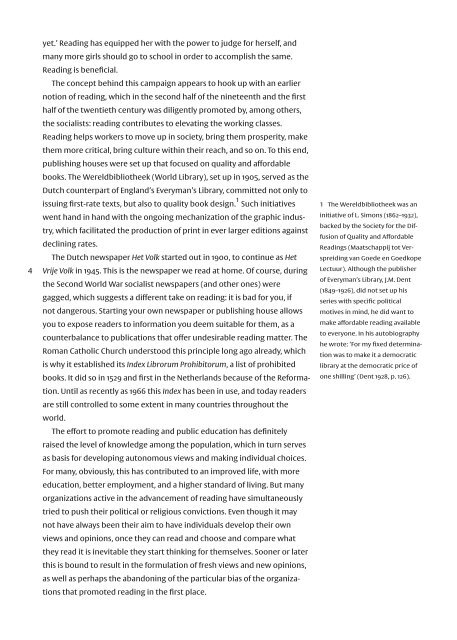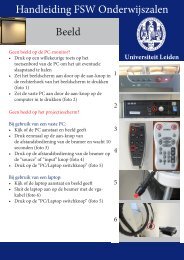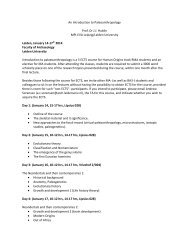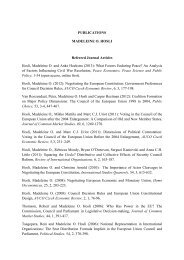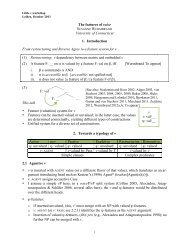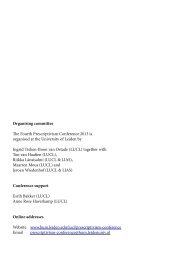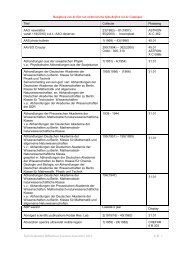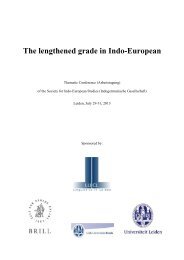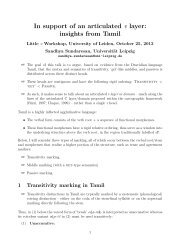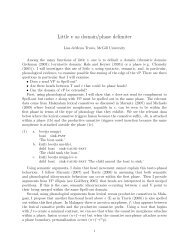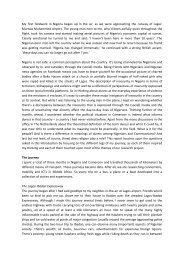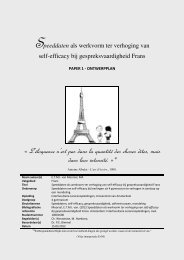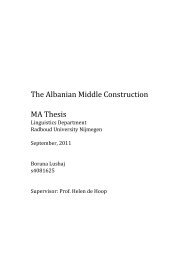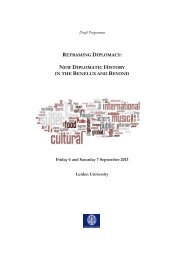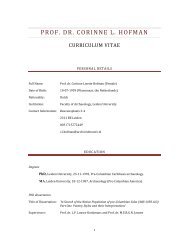Typografie als voertuig van de wetenschap - Universiteit Leiden
Typografie als voertuig van de wetenschap - Universiteit Leiden
Typografie als voertuig van de wetenschap - Universiteit Leiden
Create successful ePaper yourself
Turn your PDF publications into a flip-book with our unique Google optimized e-Paper software.
yet.’ Reading has equipped her with the power to judge for herself, and<br />
many more girls should go to school in or<strong>de</strong>r to accomplish the same.<br />
Reading is beneficial.<br />
The concept behind this campaign appears to hook up with an earlier<br />
notion of reading, which in the second half of the nineteenth and the first<br />
half of the twentieth century was diligently promoted by, among others,<br />
the socialists: reading contributes to elevating the working classes.<br />
Reading helps workers to move up in society, bring them prosperity, make<br />
them more critical, bring culture within their reach, and so on. To this end,<br />
publishing houses were set up that focused on quality and affordable<br />
books. The Wereldbibliotheek (World Library), set up in 1905, served as the<br />
Dutch counterpart of England’s Everyman’s Library, committed not only to<br />
issuing first-rate texts, but <strong>als</strong>o to quality book <strong>de</strong>sign. 1 Such initiatives<br />
went hand in hand with the ongoing mechanization of the graphic industry,<br />
which facilitated the production of print in ever larger editions against<br />
<strong>de</strong>clining rates.<br />
The Dutch newspaper Het Volk started out in 1900, to continue as Het<br />
4<br />
Vrije Volk in 1945. This is the newspaper we read at home. Of course, during<br />
the Second World War socialist newspapers (and other ones) were<br />
gagged, which suggests a different take on reading: it is bad for you, if<br />
not dangerous. Starting your own newspaper or publishing house allows<br />
you to expose rea<strong>de</strong>rs to information you <strong>de</strong>em suitable for them, as a<br />
counterbalance to publications that offer un<strong>de</strong>sirable reading matter. The<br />
Roman Catholic Church un<strong>de</strong>rstood this principle long ago already, which<br />
is why it established its In<strong>de</strong>x Librorum Prohibitorum, a list of prohibited<br />
books. It did so in 1529 and first in the Netherlands because of the Reformation.<br />
Until as recently as 1966 this In<strong>de</strong>x has been in use, and today rea<strong>de</strong>rs<br />
are still controlled to some extent in many countries throughout the<br />
world.<br />
The effort to promote reading and public education has <strong>de</strong>finitely<br />
raised the level of knowledge among the population, which in turn serves<br />
as basis for <strong>de</strong>veloping autonomous views and making individual choices.<br />
For many, obviously, this has contributed to an improved life, with more<br />
education, better employment, and a higher standard of living. But many<br />
organizations active in the ad<strong>van</strong>cement of reading have simultaneously<br />
tried to push their political or religious convictions. Even though it may<br />
not have always been their aim to have individu<strong>als</strong> <strong>de</strong>velop their own<br />
views and opinions, once they can read and choose and compare what<br />
they read it is inevitable they start thinking for themselves. Sooner or later<br />
this is bound to result in the formulation of fresh views and new opinions,<br />
as well as perhaps the abandoning of the particular bias of the organizations<br />
that promoted reading in the first place.<br />
1 The Wereldbibliotheek was an<br />
initiative of L. Simons (1862–1932),<br />
backed by the Society for the Diffusion<br />
of Quality and Affordable<br />
Readings (Maatschappij tot Verspreiding<br />
<strong>van</strong> Goe<strong>de</strong> en Goedkope<br />
Lectuur). Although the publisher<br />
of Everyman’s Library, J.M. Dent<br />
(1849–1926), did not set up his<br />
series with specific political<br />
motives in mind, he did want to<br />
make affordable reading available<br />
to everyone. In his autobiography<br />
he wrote: ‘For my fixed <strong>de</strong>termination<br />
was to make it a <strong>de</strong>mocratic<br />
library at the <strong>de</strong>mocratic price of<br />
one shilling’ (Dent 1928, p. 126).


